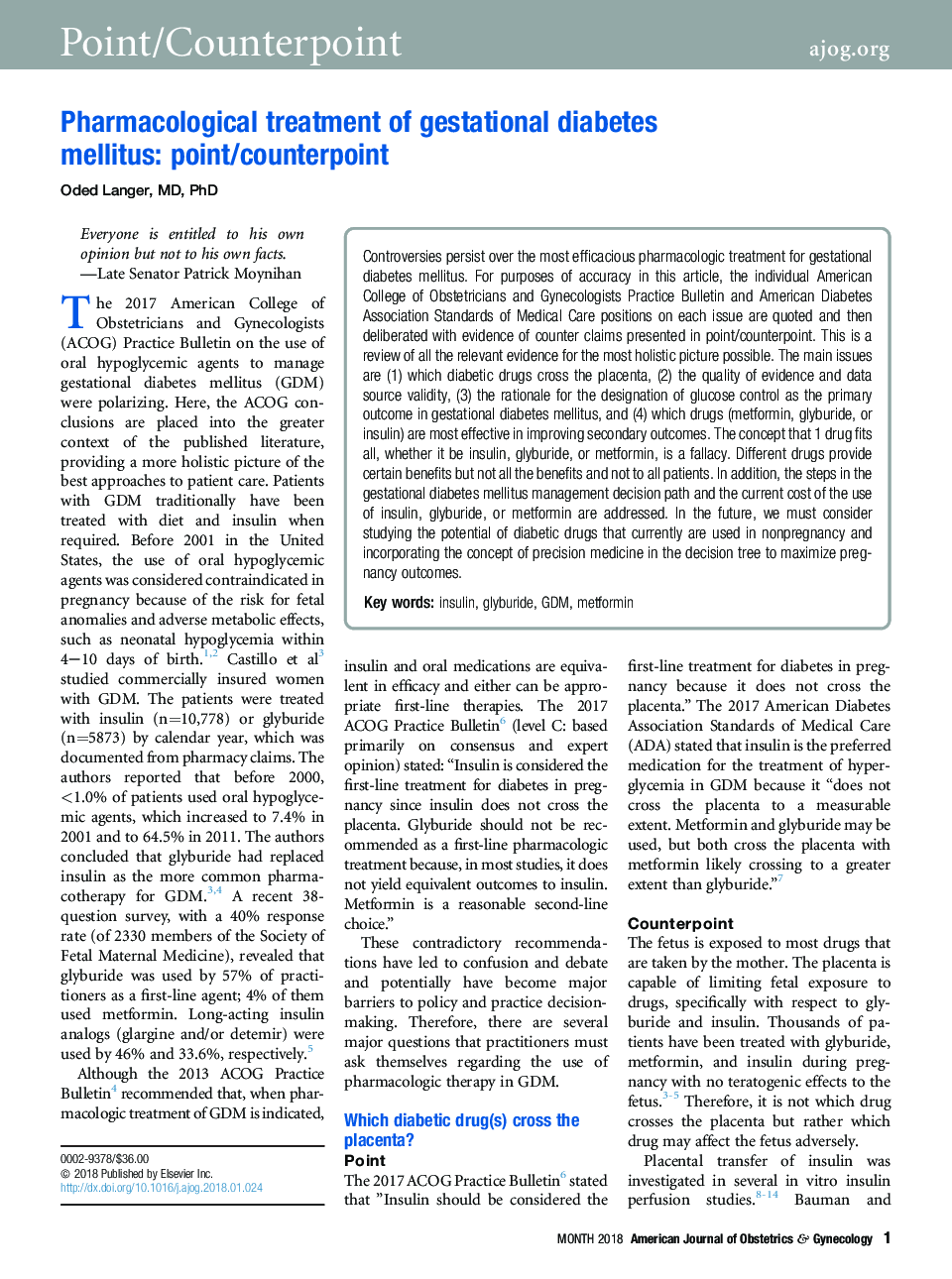| Article ID | Journal | Published Year | Pages | File Type |
|---|---|---|---|---|
| 8752481 | American Journal of Obstetrics and Gynecology | 2018 | 10 Pages |
Abstract
Controversies persist over the most efficacious pharmacologic treatment for gestational diabetes mellitus. For purposes of accuracy in this article, the individual American College of Obstetricians and Gynecologists Practice Bulletin and American Diabetes Association Standards of Medical Care positions on each issue are quoted and then deliberated with evidence of counter claims presented in point/counterpoint. This is a review of all the relevant evidence for the most holistic picture possible. The main issues are (1) which diabetic drugs cross the placenta, (2) the quality of evidence and data source validity, (3) the rationale for the designation of glucose control as the primary outcome in gestational diabetes mellitus, and (4) which drugs (metformin, glyburide, or insulin) are most effective in improving secondary outcomes. The concept that 1 drug fits all, whether it be insulin, glyburide, or metformin, is a fallacy. Different drugs provide certain benefits but not all the benefits and not to all patients. In addition, the steps in the gestational diabetes mellitus management decision path and the current cost of the use of insulin, glyburide, or metformin are addressed. In the future, we must consider studying the potential of diabetic drugs that currently are used in nonpregnancy and incorporating the concept of precision medicine in the decision tree to maximize pregnancy outcomes.
Related Topics
Health Sciences
Medicine and Dentistry
Medicine and Dentistry (General)
Authors
Oded MD, PhD,
